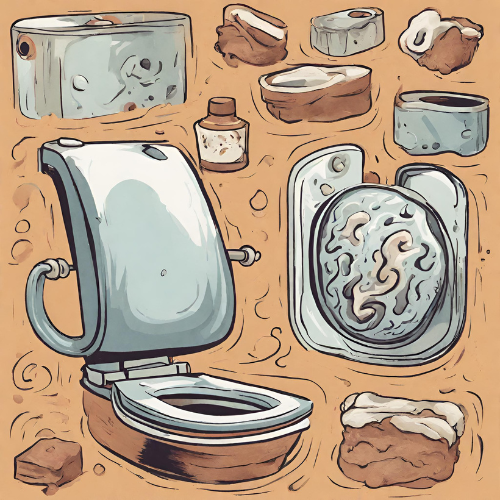Understanding Diarrhea: A Comprehensive Guide to Symptoms, Causes, and Treatment
What is Diarrhea? Diarrhea is a common digestive disorder characterized by frequent, loose, and watery bowel movements. It is often accompanied by abdominal cramps, bloating, and urgency to use the restroom. While occasional diarrhea is usually not cause for concern, persistent or severe diarrhea can lead to dehydration and other complications.
Types of Diarrhea:
- Acute Diarrhea: Typically lasts for a short duration, often caused by infections, food poisoning, or dietary indiscretion.
- Chronic Diarrhea: Persists for an extended period, usually three weeks or longer, and may be indicative of underlying medical conditions such as irritable bowel syndrome (IBS), inflammatory bowel disease (IBD), or malabsorption disorders.
Symptoms of Diarrhea:
- Frequent, loose, and watery stools
- Abdominal cramps and pain
- Bloating and gas
- Urgency to have a bowel movement
- Nausea and vomiting (in some cases)
Causes of Diarrhea:
- Infections: Viral, bacterial, or parasitic infections of the gastrointestinal tract.
- Dietary Factors: Consuming foods or beverages that irritate the digestive system, such as spicy foods, dairy products (in lactose-intolerant individuals), or artificial sweeteners.
- Medications: Certain medications, such as antibiotics, laxatives, or antacids containing magnesium, can cause diarrhea as a side effect.
- Chronic Conditions: Conditions such as IBS, IBD (Crohn’s disease, ulcerative colitis), celiac disease, or pancreatic insufficiency can lead to chronic diarrhea.
- Stress and Anxiety: Psychological factors such as stress, anxiety, or nervousness can trigger diarrhea in some individuals.
Risk Factors for Diarrhea:
- Young age (infants and young children)
- Traveling to regions with poor sanitation and hygiene
- Weakened immune system
- Recent antibiotic use
- Chronic medical conditions affecting the digestive system
Diagnosis of Diarrhea:
- Medical History: Your healthcare provider will inquire about your symptoms, medical history, recent travel, and dietary habits.
- Physical Examination: A physical examination may be performed to assess signs of dehydration, abdominal tenderness, or other symptoms.
- Stool Tests: Stool samples may be collected and analyzed for the presence of infectious agents, blood, or other abnormalities.
Treatment of Diarrhea:
Pharmacological Treatment:
- Antidiarrheal Medications: Over-the-counter medications such as loperamide (Imodium) or bismuth subsalicylate (Pepto-Bismol) may help reduce the frequency of bowel movements and relieve symptoms.
- Antibiotics: If diarrhea is caused by a bacterial infection, your healthcare provider may prescribe antibiotics to treat the underlying infection.
- Intravenous Fluids: In cases of severe dehydration, particularly in young children or older adults, intravenous fluids may be administered to restore hydration and electrolyte balance.
Non-Pharmacological Treatment:
- Hydration: Drink plenty of fluids, such as water, clear broths, or oral rehydration solutions, to replace lost fluids and electrolytes.
- Dietary Modifications: Follow a bland diet consisting of easily digestible foods such as bananas, rice, applesauce, and toast (BRAT diet) until symptoms improve. Avoid foods and beverages that may exacerbate diarrhea, such as caffeine, alcohol, spicy foods, and high-fat or high-fiber foods.
- Rest: Get plenty of rest to allow your body to recover and heal.
Conclusion: Diarrhea is a common digestive disorder that can be caused by various factors, including infections, dietary factors, medications, and underlying medical conditions. While most cases of diarrhea resolve on their own with symptomatic treatment and supportive care, it is important to seek medical attention if symptoms persist or worsen, particularly in young children, older adults, or individuals with weakened immune systems. By understanding the symptoms, causes, and treatment options for diarrhea, you can take proactive steps to manage the condition effectively and promote overall digestive health.




